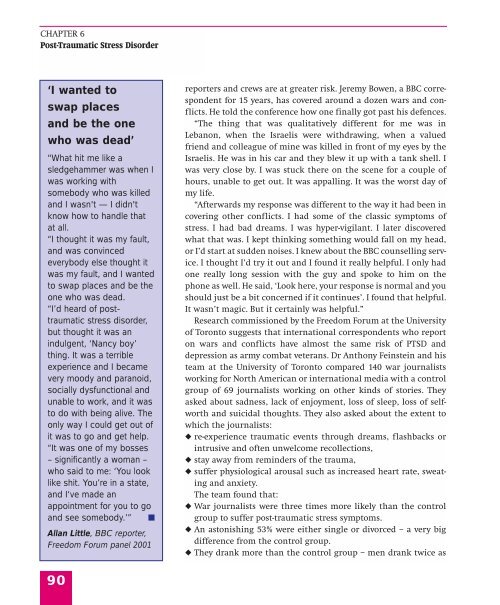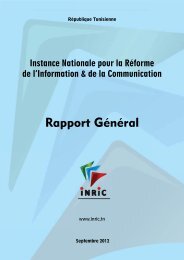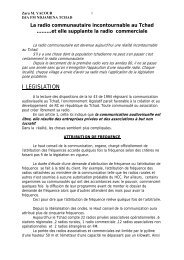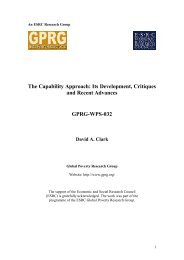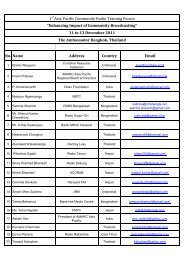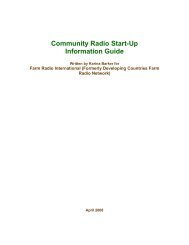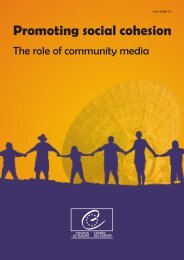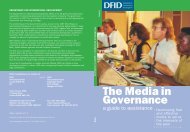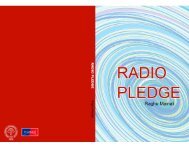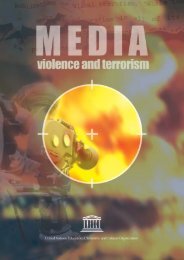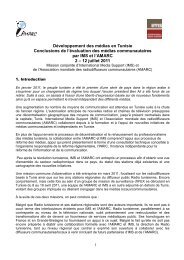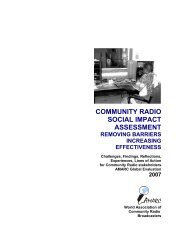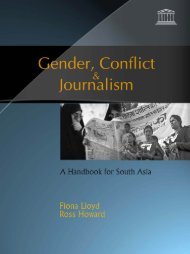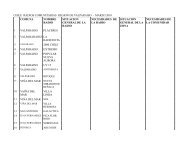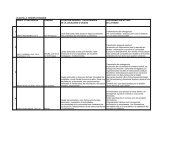Live News - A Survival Guide - International Federation of Journalists
Live News - A Survival Guide - International Federation of Journalists
Live News - A Survival Guide - International Federation of Journalists
- No tags were found...
You also want an ePaper? Increase the reach of your titles
YUMPU automatically turns print PDFs into web optimized ePapers that Google loves.
CHAPTER 6Post-Traumatic Stress Disorder‘I wanted toswap placesand be the onewho was dead’"What hit me like asledgehammer was when Iwas working withsomebody who was killedand I wasn't — I didn'tknow how to handle thatat all.“I thought it was my fault,and was convincedeverybody else thought itwas my fault, and I wantedto swap places and be theone who was dead.“I’d heard <strong>of</strong> posttraumaticstress disorder,but thought it was anindulgent, ‘Nancy boy’thing. It was a terribleexperience and I becamevery moody and paranoid,socially dysfunctional andunable to work, and it wasto do with being alive. Theonly way I could get out <strong>of</strong>it was to go and get help.“It was one <strong>of</strong> my bosses– significantly a woman –who said to me: ‘You looklike shit. You’re in a state,and I‘ve made anappointment for you to goand see somebody.’” ■Allan Little, BBC reporter,Freedom Forum panel 2001reporters and crews are at greater risk. Jeremy Bowen, a BBC correspondentfor 15 years, has covered around a dozen wars and conflicts.He told the conference how one finally got past his defences.“The thing that was qualitatively different for me was inLebanon, when the Israelis were withdrawing, when a valuedfriend and colleague <strong>of</strong> mine was killed in front <strong>of</strong> my eyes by theIsraelis. He was in his car and they blew it up with a tank shell. Iwas very close by. I was stuck there on the scene for a couple <strong>of</strong>hours, unable to get out. It was appalling. It was the worst day <strong>of</strong>my life.“Afterwards my response was different to the way it had been incovering other conflicts. I had some <strong>of</strong> the classic symptoms <strong>of</strong>stress. I had bad dreams. I was hyper-vigilant. I later discoveredwhat that was. I kept thinking something would fall on my head,or I’d start at sudden noises. I knew about the BBC counselling service.I thought I’d try it out and I found it really helpful. I only hadone really long session with the guy and spoke to him on thephone as well. He said, ‘Look here, your response is normal and youshould just be a bit concerned if it continues’. I found that helpful.It wasn’t magic. But it certainly was helpful.”Research commissioned by the Freedom Forum at the University<strong>of</strong> Toronto suggests that international correspondents who reporton wars and conflicts have almost the same risk <strong>of</strong> PTSD anddepression as army combat veterans. Dr Anthony Feinstein and histeam at the University <strong>of</strong> Toronto compared 140 war journalistsworking for North American or international media with a controlgroup <strong>of</strong> 69 journalists working on other kinds <strong>of</strong> stories. Theyasked about sadness, lack <strong>of</strong> enjoyment, loss <strong>of</strong> sleep, loss <strong>of</strong> selfworthand suicidal thoughts. They also asked about the extent towhich the journalists:◆ re-experience traumatic events through dreams, flashbacks orintrusive and <strong>of</strong>ten unwelcome recollections,◆ stay away from reminders <strong>of</strong> the trauma,◆ suffer physiological arousal such as increased heart rate, sweatingand anxiety.The team found that:◆ War journalists were three times more likely than the controlgroup to suffer post-traumatic stress symptoms.◆ An astonishing 53% were either single or divorced – a very bigdifference from the control group.◆ They drank more than the control group – men drank twice as90


